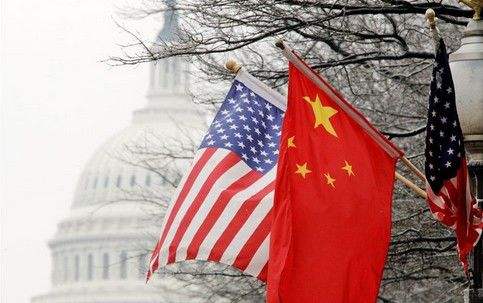


China's foreign ministry spokesperson said the United States has a strong sense of insecurity which is beyond comprehension, in response to latest accusations from US National Intelligence Daniel Coats that the US is confronted with multiple threats from China.
"I don't know why the United States has such a strong sense of insecurity," said foreign ministry spokesperson Geng Shuang at a press conference on Wednesday, adding that there is no such thing as the absolute security under the sun, and one country's security cannot be achieved at the expense of other countries' security.
Director of US National Intelligence Daniel Coats said at a Senate Intelligence Committee hearing on Tuesday that the US is confronted with multiple threats posed by countries like Russia and China, including the Iranian nuclear issue, the Korean Peninsula nuclear issue, cyber threat, espionage, and weaponization of outer space.
He said Russia, China, Iran and North Korea pose the greatest global cyber threats. "Frankly, the United States is under attack," Coats said.
Geng asked the United States to discard the "zero-sum game" mindset, refrain from viewing the relations between major countries from a confrontational perspective, correspond with the trend of the times, namely, peace and development, and make concerted efforts with China, Russia and other members of the international community to jointly uphold world peace and security.
"The United States is the No.1 major power in the world with unparallel military might. If the United States felt that it was threatened hither and thither, what would other countries do? Shouldn't they feel that the danger just lurked at the doorstep? How could they even survive in that case?" Geng retorted.
Complaints against China over security have gained steam recently. FBI Director Christopher Wray told the Senate Intelligence Committee Tuesday that China has aggressively placed spies at US universities. Last week, senator Marco Rubio of Florida wrote to five Florida institutions and asked them to shut down their joint programs with China's Confucius Institute.
Related:
"Dangerous" to advocate for confrontation against China: Chinese ambassador to U.S.
WASHINGTON, Feb. 14 (Xinhua) -- It would be dangerous to advocate for confrontation against China, Chinese Ambassador to the United States Cui Tiankai has said here.
"It's certainly paranoid to fear that a China that follows its own path of development would be confrontational to the United States. And it's dangerous to advocate any strategy for confrontation (against China)," Cui told a spring festival reception at the Chinese embassy on Tuesday.
"It would be wishful thinking to believe that some political or cultural genetic engineering could be done to change China's DNA," he said.
More than 700 attended the event, among them U.S. Secretary of Commerce Wilbur Ross, White House National Security Council senior director for Asian affairs Matthew Pottinger, Acting Assistant Secretary of State Susan Thornton and U.S. Senator of West Virginia Shelley Capito.
 Fire brigade in Shanghai holds group wedding
Fire brigade in Shanghai holds group wedding Tourists enjoy ice sculptures in Datan Town, north China
Tourists enjoy ice sculptures in Datan Town, north China Sunset scenery of Dayan Pagoda in Xi'an
Sunset scenery of Dayan Pagoda in Xi'an Tourists have fun at scenic spot in Nanlong Town, NW China
Tourists have fun at scenic spot in Nanlong Town, NW China Harbin attracts tourists by making best use of ice in winter
Harbin attracts tourists by making best use of ice in winter In pics: FIS Alpine Ski Women's World Cup Slalom
In pics: FIS Alpine Ski Women's World Cup Slalom Black-necked cranes rest at reservoir in Lhunzhub County, Lhasa
Black-necked cranes rest at reservoir in Lhunzhub County, Lhasa China's FAST telescope will be available to foreign scientists in April
China's FAST telescope will be available to foreign scientists in April "She power" plays indispensable role in poverty alleviation
"She power" plays indispensable role in poverty alleviation Top 10 world news events of People's Daily in 2020
Top 10 world news events of People's Daily in 2020 Top 10 China news events of People's Daily in 2020
Top 10 China news events of People's Daily in 2020 Top 10 media buzzwords of 2020
Top 10 media buzzwords of 2020 Year-ender:10 major tourism stories of 2020
Year-ender:10 major tourism stories of 2020 No interference in Venezuelan issues
No interference in Venezuelan issues
 Biz prepares for trade spat
Biz prepares for trade spat
 Broadcasting Continent
Broadcasting Continent Australia wins Chinese CEOs as US loses
Australia wins Chinese CEOs as US loses